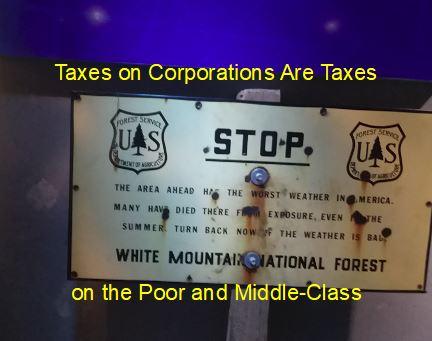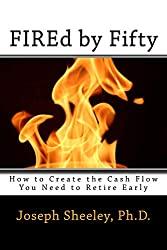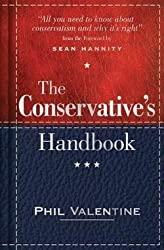 Thinking raising corporate taxes is a good thing? Stop and think!
Thinking raising corporate taxes is a good thing? Stop and think!
When talking about raising taxes, Joe Biden claims that he won’t raise taxes on anyone making less than $400,000 per year. But then in the next breath he says that he is going to raise taxes on corporations and “make them pay their fair share.” But raising taxes on business is raising taxes on the poor and middle-class; basically anyone who does business with them. In this article we explain how.
(Note, this site contains affiliate links. As an Amazon Associate I earn from qualifying purchases. When you click on an affiliate link and buy something, The Small Investor will get a small commission for the referral. You are charged nothing extra for the purchase. This helps keep The Small Investor going and free. I don’t recommend any products I do not fully support. If you would like to help but don’t see anything you need, feel free to visit Amazon through this link and buy whatever you wish. The Small Investor will get a small commission when you do, again at no cost to you.)

Get free shipping on many items you buy from Amazon through Amazon Prime. Try Amazon Prime 30-Day Free Trial
How prices are determined in a free-enterprise system
In a free-enterprise system as in America, prices are set by businesses competing against each other for customers. A business will set a price for an item, but then as long as there are enough competitors, someone else will come along and set a lower price if he is able to do so and still make a reasonable profit. He does this not out of the goodness of his heart, but because he knows that if he can sell at a lower price and still make a reasonable profit, he will take business away from other competitors. This continues until the lowest price is found at which the item can be sold while covering costs and still making it worth it for the owners. What this price is will vary by the cost needed to acquire the product and sell it, the market, the number of competitors, and what the product is. (Some brands that are exclusive to one company and then get snob appeal are purposely priced high since that makes them more desirable. Think Harley Davidson motorcycles or Rolex watches.)
To try to gain more market share and sell more products, companies are constantly trying to find new and cheaper ways to make/acquire products to sell. If they can cut their costs, they can lower their price below that of their competitors and sell more. Once one finds a way to lower costs, however, competitors quickly copy him or lose market share for the product. If they cannot match price, they will often stop selling the product since they do not sell enough or go out of business all together if that is a major product for them. This is why an item in a market will sell for about the same price everywhere within a given market. Now that the internet has connected more businesses to more consumers, the price for things that can be shipped easily enough has dropped even further in some markets because there are more competitors and one no longer needs to buy local and pay local costs, which are high in some places.

(If you enjoy The Small Investor and want to support the cause, or you just want to learn how to become financially independent, please consider picking up a copy of my new book, FIREd by Fifty: How to Create the Cash Flow You Need to Retire Early This is the instruction manual on how to become financially independent.)
Taxes are a cost
So, what about taxes? Taxes are just another cost that businesses need to pay. If you raise the taxes that a business must pay and make it so that they cannot avoid paying those taxes, it becomes part of the cost of bringing the product to market. In the auction system of the market, this means that the price at which a company will sell a product just increases by whatever the amount the tax is. Sometimes companies will even put the tax explicitly in the bill after the purchase is made to make their price look lower. For example, sales tax is normally taken at the register, as are hotel lodging taxes and other surcharges a city may put upon a business. Businesses want the customer to know that their price is lower than the total bill. It is just the taxes that are making the total cost higher.
So, let’s say that a business is selling widgets for $10 each, where their cost of sales if $8 so they are making a $2 profit per widget and then the government puts a $1 surcharge on widgets. Their cost per widget is now $9 instead of $8. If the business were to just absorb the $1 surcharge they would now only be making $1 per widget in profit. You might be thinking that they could just do this, but remember that they have already set the price as low as they can based on their cost and other factors. Maybe they are selling 50,000 widgets per year, which means that they were making $100,000 per year before the tax. After they pay for their own income taxes, health insurance, clothing, gasoline, parking, and other personal costs, they might be taking home $50,000 per year. If they were to absorb the tax, their income tax would go down since they would be making less income, but this would still mean they would only be taking home $20,000 or so per year for all of their time and efforts, which wouldn’t be worth their time and probably wouldn’t cover their personal expenses.

Want all the details on using Investing to grow financially Independent? Try The SmallIvy Book of Investing
Instead, they would raise the price on the product. They could do this without worrying about losing market share to competitors since everyone’s cost would have gone up since they would all be paying the tax, so they would need to raise their prices or personally go bankrupt as well. So, now the customer is getting the same widget, but paying $1 more for it because she’s paying the tax. While it might be someone making more than $400,000 buying the item, it might also be someone making $40,000 per year. Everyone pays the higher price, regardless of their income, unless they are too poor to afford the product at the higher price at all.
Everyone then talks about inflation and how things used to be so much cheaper, but this is really the effect of higher taxes. This is why things cost more in New York City than they do in Bismarck, North Dakota. Think about how much easier it is to get products into New York than it is to get them to Bismarck. Think about how many more stores their are in NYC than Bismarck. The difference is that the taxes in New York are much higher, which also means rent, transportation, and labor all cost more. You pay a lot more for the exact same thing because of taxes. You might make a higher salary, but your standard of living is no better, or even worse, than it would be in Bismarck at a lower salary.

What about big corporations?
“Wait a minute, Ivy,” you may be thinking. What about big corporations? They make hundreds of millions of dollars per year. Surely, they can just pay the tax themselves, right?
It works exactly the same for the corporations, except now instead of having one business owner, you have thousands of shareholders. Now before you think of guys in tuxedos and Monopoly Man top hats sitting around, smoking cigars, realize that most shareholders are people just like you, contributing to their 401ks or putting other money away for their family’s financial security. (If you’re not a shareholder now, buy a copy of The SmallIvy Book of Investing and learn how to invest and join us. Don’t have the cash? Pick up FIREd by Fifty and learn how to get the cash flow you need.) They are receiving a certain dividend and paying a certain price per share based on the earnings of the company.
If you just reduce their earnings by having them pay a tax, you reduce the income they get from dividends. (If the company doesn’t pay a dividend, you’re reducing the amount they could get from future dividends.) Just like the small business owner, the amount they are willing to pay per share is set by an auction system. They are therefore already paying the maximum that they can for it to be worth the risk that they are taking and for them to tie up their money. If you just reduce their earnings, the share price drops to match, meaning you’ll have less money for investments in new companies and company expansions. This means that everything would be worse for consumers than it was before the tax. It would be hard to get things and there would be a lot of things that you would never get because they would never be made and sold. If the tax is high enough, earnings might go negative, which means no one would buy shares because they would be losing money every year and the company would disappear entirely.
So instead, the company raises prices. They can do this because all of their competitors do as well since everyone’s cost is higher. If they can, the company may do things like start making the products overseas where they don’t need to pay the tax if the cost of doing so and importing it is less than it costs to make it in the USA. This means that people in the USA lose jobs. They might also just pay less since they are making less of a profit and therefore have less money for payrolls. Once again, the small guy loses – people making a lot less than $400,000 per year.

Phil Valentine: The Conservative’s Handbook : Defining the Right Position on Issues from A to Z (Hardcover – Revised Ed.); 2016 Edition
The company’s really don’t mind this. Their revenue goes up, making it look like they are making more money (even though their profits stay about the same). Their executives (the one’s you probably picture as paying the tax when you raise taxes on corporations) get a proportionally higher salary and bonuses since revenues have increased. They can buy the bigger corporate jet since now their revenues are higher and it doesn’t look so expensive compared to what the company is making each year. This is why big companies don’t complain too much when taxes are raised. The executives know that they aren’t the ones who are going to pay it. Their customers are.
So, when you hear Joe Biden say that he isn’t raising your taxes, don’t believe him. He is lying or too ignorant to know what he’s doing. And he isn’t too ignorant. Raising taxes on corporations means higher prices, lower wages, and jobs moving overseas. The middle-class and the poor are the ones who pay. And that is because that’s where the money is and the wealthy are the ones making the big campaign donations and who have the fancy lawyers and accountants to help them minimize their taxes. Don’t be fooled.
Please contact me via [email protected] or leave a comment.
Disclaimer: This blog is not meant to give financial planning or tax advice. It gives general information on investment strategy, picking stocks, and generally managing money to build wealth. It is not a solicitation to buy or sell stocks or any security. Financial planning advice should be sought from a certified financial planner, which the author is not. Tax advice should be sought from a CPA. All investments involve risk and the reader as urged to consider risks carefully and seek the advice of experts if needed before investing.
